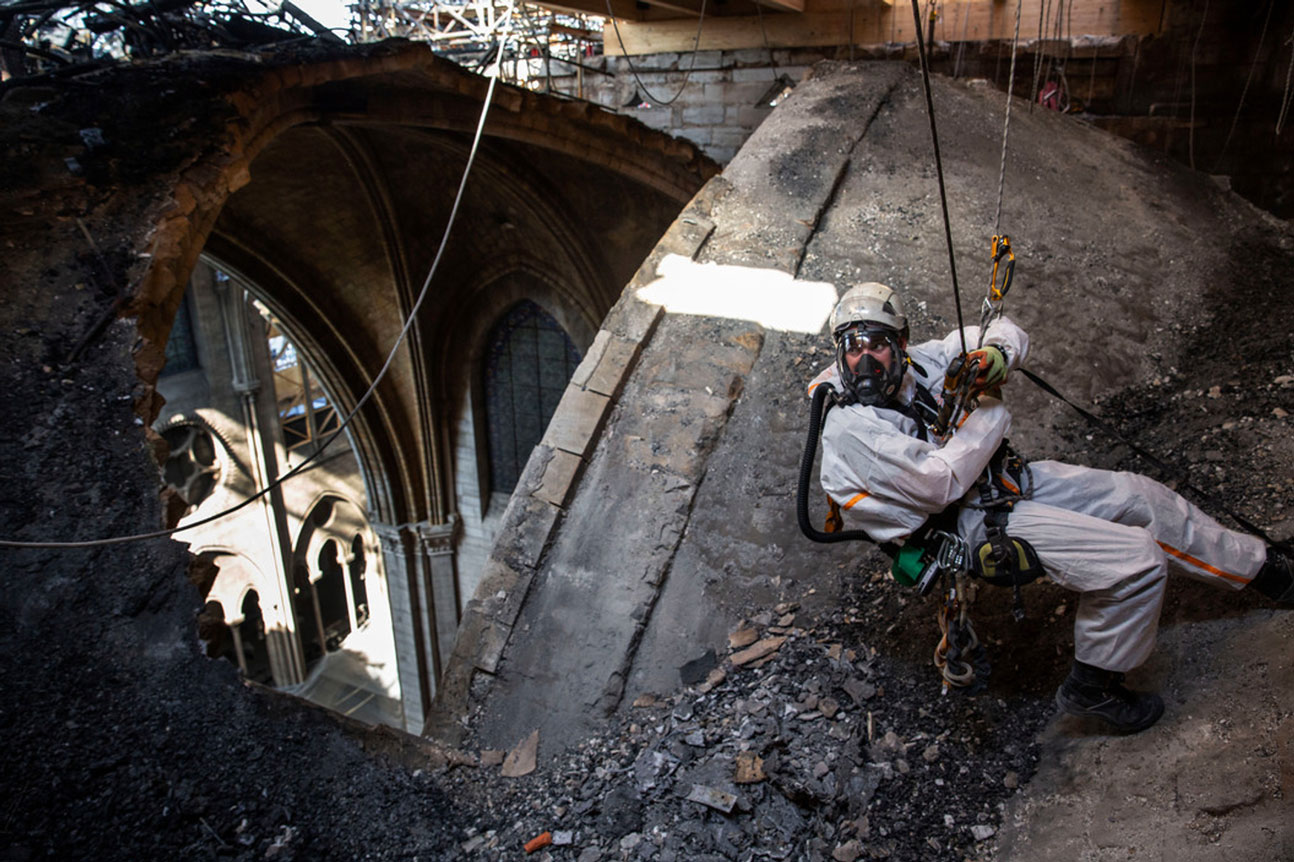Post-fire restoration of historic buildings

The catastrophic fire that ravaged the Notre Dame cathedral in Paris on 15 April 2019 shocked people around the world. Sadly, Notre Dame is only one of many cases of historical structures lost to fire. Despite this, the importance of thorough post-fire investigations remains all too often overlooked.
The restoration of fire-damaged monuments involves questions related to architecture, engineering, materials science, fire safety and ethics of conservation. Structural stability is clearly of primary importance, but it can only adequately be evaluated on the basis of reliable post-fire investigations, which generally require time. From a materials point of view, the modifications induced by fire can alter the delicate equilibrium between a structure and its surroundings, possibly inducing previously unobserved forms of degradation. In this respect, the transport and redistribution of water - especially following fire-extinguishing operations - is of crucial importance for the preservation of porous materials such as wood and stone.
In this external page Nature Materials paper, we define the main materials science challenges of post-fire restoration, and discuss them in relation to issues of structural integrity, fire safety and preservation ethics.
The full paper can be read here: Praticò, Y., Ochsendorf, J., Holzer, S. et al. Post-fire restoration of historic buildings and implications for Notre-Dame de Paris. Nat. Mater. 19, 817–820 (2020). https://doi.org/10.1038/s41563-020-0748-y